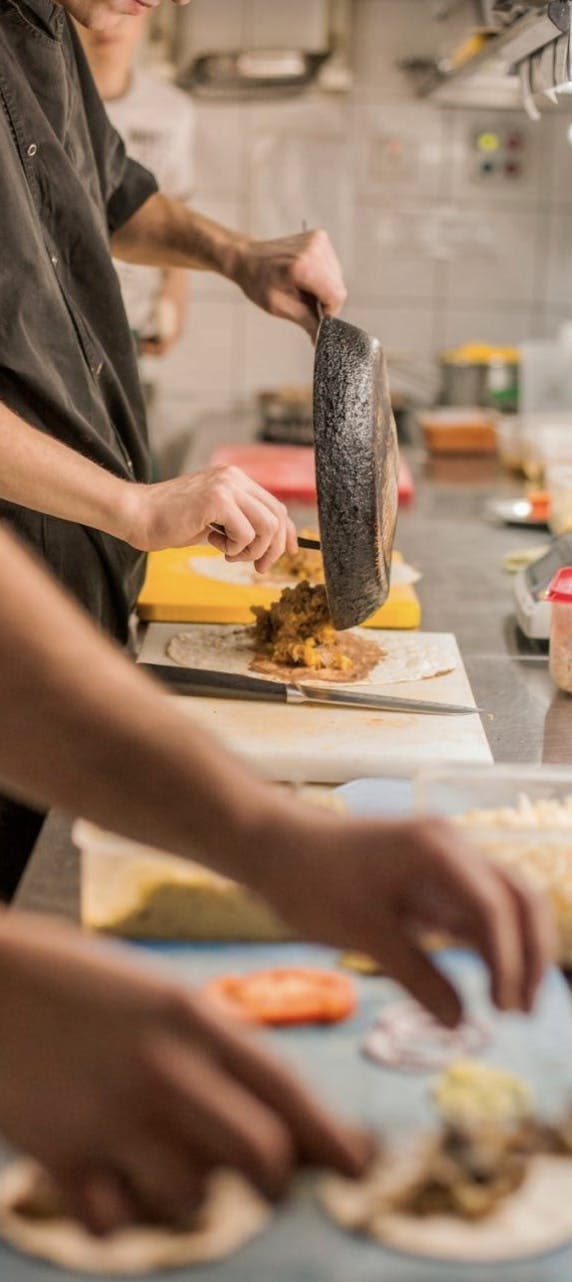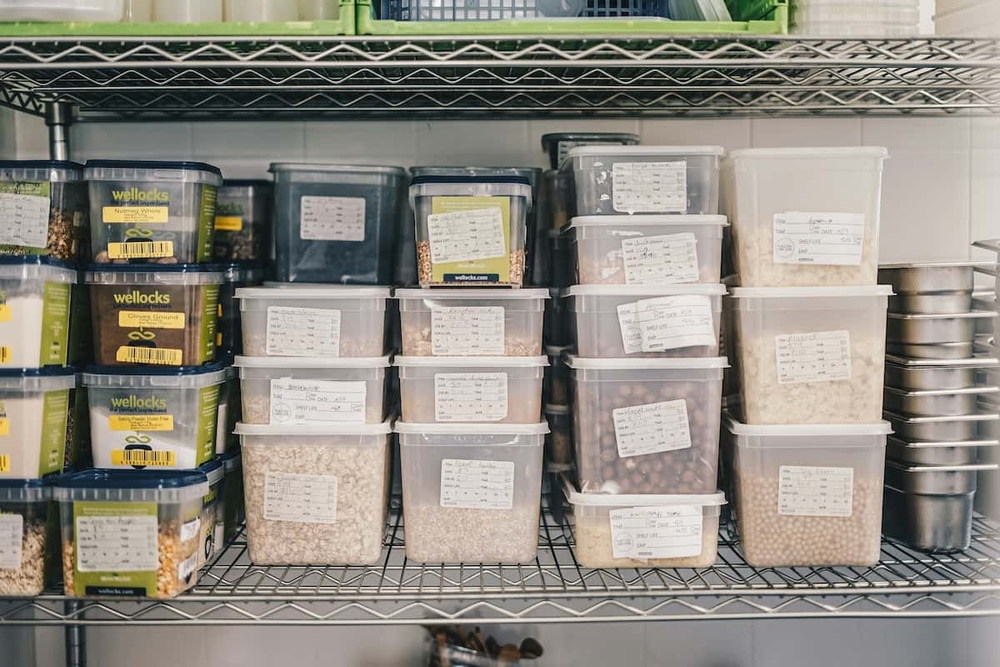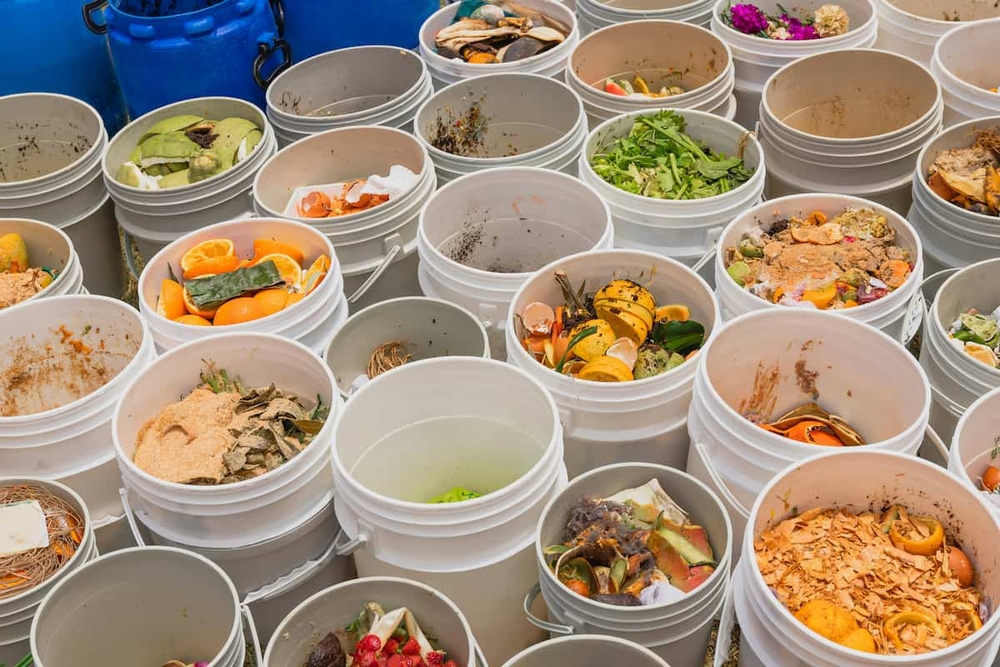Grow faster and smarter: how co-packing kitchens can boost your food business
Table of Contents
CloudKitchens
How many tacos can be delivered from a 1000sqft restaurant?
The same amount as a 200sqft ghost kitchen.
Turning a great recipe into a thriving food business is no small feat. Whether you’re bottling sauces in your home kitchen or managing a full prep team, growth comes with real challenges. How do you scale without compromising quality?
That’s where co-packing kitchens come in. For food entrepreneurs wanting to take things to the next level, co-packers offer a game-changing way to ramp up production, streamline operations, and expand into new markets without the overwhelming costs of doing it all in-house.
In this guide, we’ll break down how co-packing kitchens can help scale your food business, the benefits they bring and what to expect when partnering with a co-packer.
What is a co-packer in the food industry?
A co-packer, short for contract packager, is a third-party partner that handles food production and packaging on behalf of your brand. Instead of investing in expensive equipment and a full-time team, you collaborate with a co-packer to produce your recipes at scale.
Think of them as your behind-the-scenes kitchen partner. You bring the vision, the flavor, and the brand — your co-packer brings the tools, space, and expertise to help you meet growing demand.
They’re especially helpful for:
- Startups moving from farmers markets to grocery shelves;
- Meal prep businesses fulfilling weekly subscriptions;
- Restaurants bottling sauces or frozen entrees;
- CPG brands scaling into national distribution.
Read more: The power of unique food packaging in customer experience
The difference between a co-packer and a commercial kitchen
Many food businesses start in commercial kitchens — licensed spaces you rent by the hour. You cook, package, and handle logistics yourself. It’s affordable and flexible, great for early-stage growth.
But when you’re spending more time fulfilling orders than building your brand, it’s time to think bigger.
Here’s the key difference:
Commercial kitchens:
- Shared-use spaces;
- You manage all cooking, packaging, and shipping;
- Good for small batches and testing new products.
Co-packing kitchens:
- Full-service production facilities;
- Staffed with pros who handle manufacturing and packaging;
- Built for large-scale, repeatable processes.
In short, commercial kitchens are DIY; co-packers are your outsourced production powerhouse.
Benefits of scaling a food business with co-packing kitchens
There’s a reason co-packing is such a popular step for growing food brands. The benefits speak for themselves:
1. Boosted production without the overhead
You no longer need to rent bigger kitchens, hire production teams, or buy expensive equipment. Co-packers already have what you need to scale.
2. Better cost management
While there are upfront costs, co-packing saves money long term by reducing labor, waste, and space needs. It lets you focus on growth areas like marketing or product expansion.
3. Consistent quality
Scaling can risk consistency — but not with a co-packer. Their standardized processes and expert teams ensure your product looks, tastes, and performs the same every time.
4. Legal and food safety compliance
From FDA labeling to allergen controls, co-packers are built to meet health and safety regulations, helping you avoid costly mistakes or delays.
5. Speed to market
Launching a new product line? With co-packing, you can get it into customers’ hands faster — no months of kitchen buildouts required.
Read more: The power of unique food packaging in customer experience
How to work with a co-packer
Starting a co-packing relationship takes some preparation. Here’s how to get the most from it:
1. Finalize your product
Make sure your recipe is dialed in. Your co-packer will need measurements, ingredient lists, packaging preferences, and shelf-life data.
2. Find a co-packer that fits your needs
Do they specialize in your category? Can they meet your volume? Are they local or near your target markets? Don’t be afraid to shop around.
3. Nail down the details
A contract should cover pricing, timelines, ownership of the recipe, and IP protections. Be clear about your expectations.
4. Test before going big
Start with small production runs to work out any kinks and build trust.
5. Stay involved
Even though you’re outsourcing, stay close to production and logistics to maintain quality and timelines.
Read more: Ghost kitchen vs. traditional restaurant: Which one is right for you?
When to consider using a co-packer
Co-packing is a good fit when:
- You’re maxing out your current kitchen space;
- You want to enter retail or wholesale channels;
- You can’t keep up with demand manually;
- You want to expand into new regions;
- Your time is better spent growing your brand, not cooking;
It’s a natural progression for most successful food entrepreneurs.
What challenges come with co-packing?
Of course, co-packing isn’t without its growing pains:
Minimums and costs: Some co-packers require large orders. Start with smaller-scale partners or negotiate trial runs.
Less control: You’re not in the kitchen daily. That’s why good communication and clear documentation are key.
Finding the right fit: Take your time choosing a co-packer. Visit facilities, ask for referrals, and start slow.
Read more: A complete guide to crafting an effective restaurant training manual
Pair production scale with delivery scale
Scaling a food business with co packing kitchens gives you the freedom to grow without burning out. And when you’re ready to deliver that growth, CloudKitchens is the partner that makes it possible!
CloudKitchens offers turnkey commercial kitchens in cities across the U.S., perfect for:
- Serving new regions without opening full restaurants;
- Launching delivery-only brands;
- Cutting down on real estate and staffing costs;
- Integrating directly with top delivery apps.
Want to bring your food to more customers, faster? CloudKitchens helps you expand food delivery with complete kitchens without the headache. Let’s build your next kitchen together.
DISCLAIMER: This information is provided for general informational purposes only and the content does not constitute an endorsement. CloudKitchens does not warrant the accuracy or completeness of any information, text, images/graphics, links, or other content contained within the blog content. We recommend that you consult with financial, legal, and business professionals for advice specific to your situation.
More insights & stories
There’s more where that came from.
Get in the know and check out our additional insights


